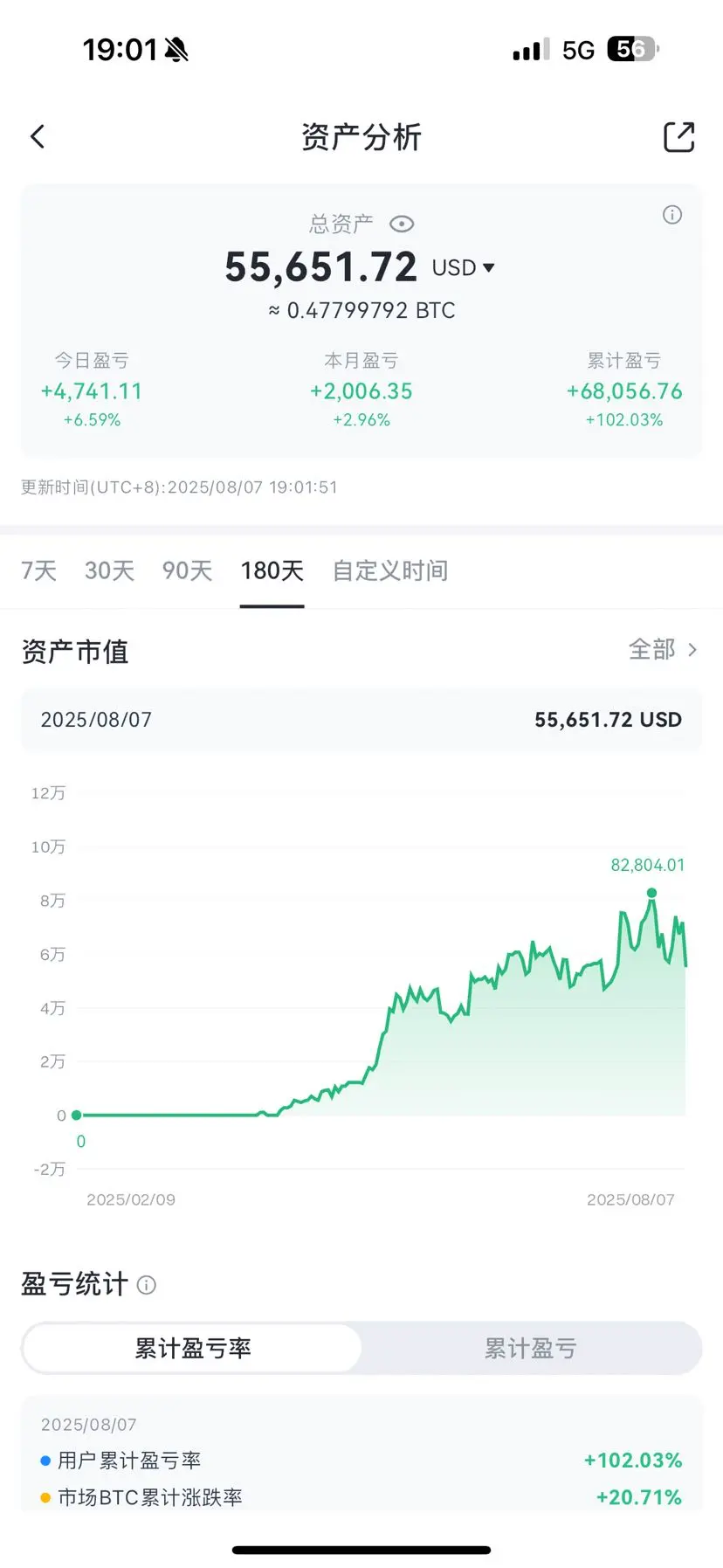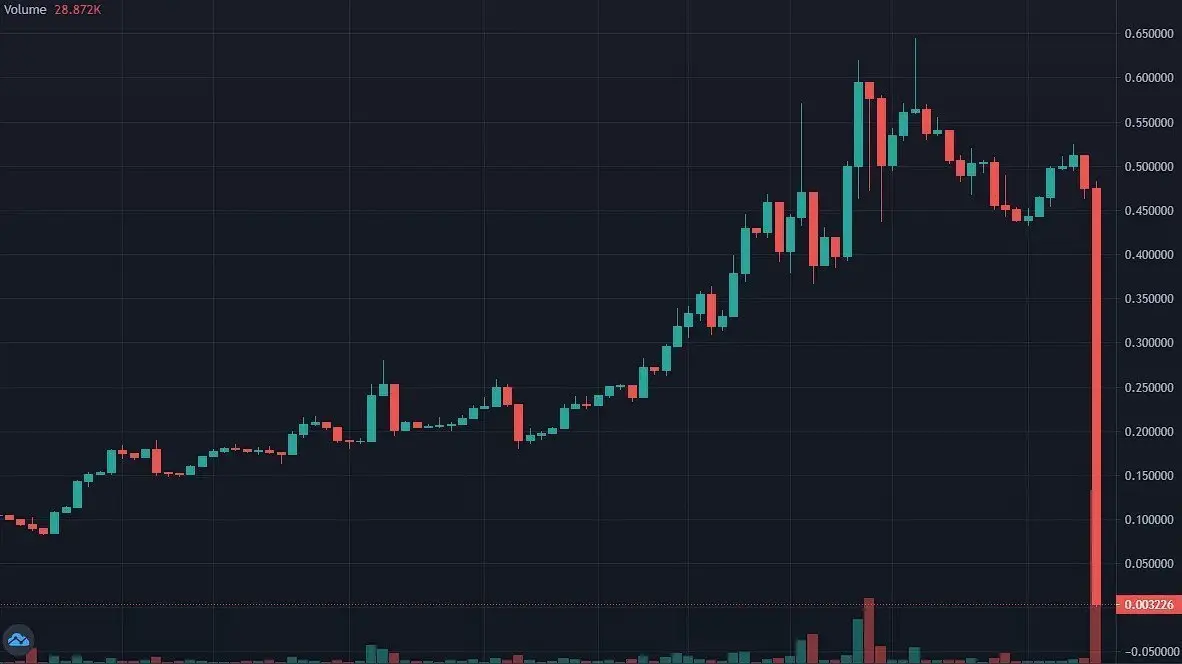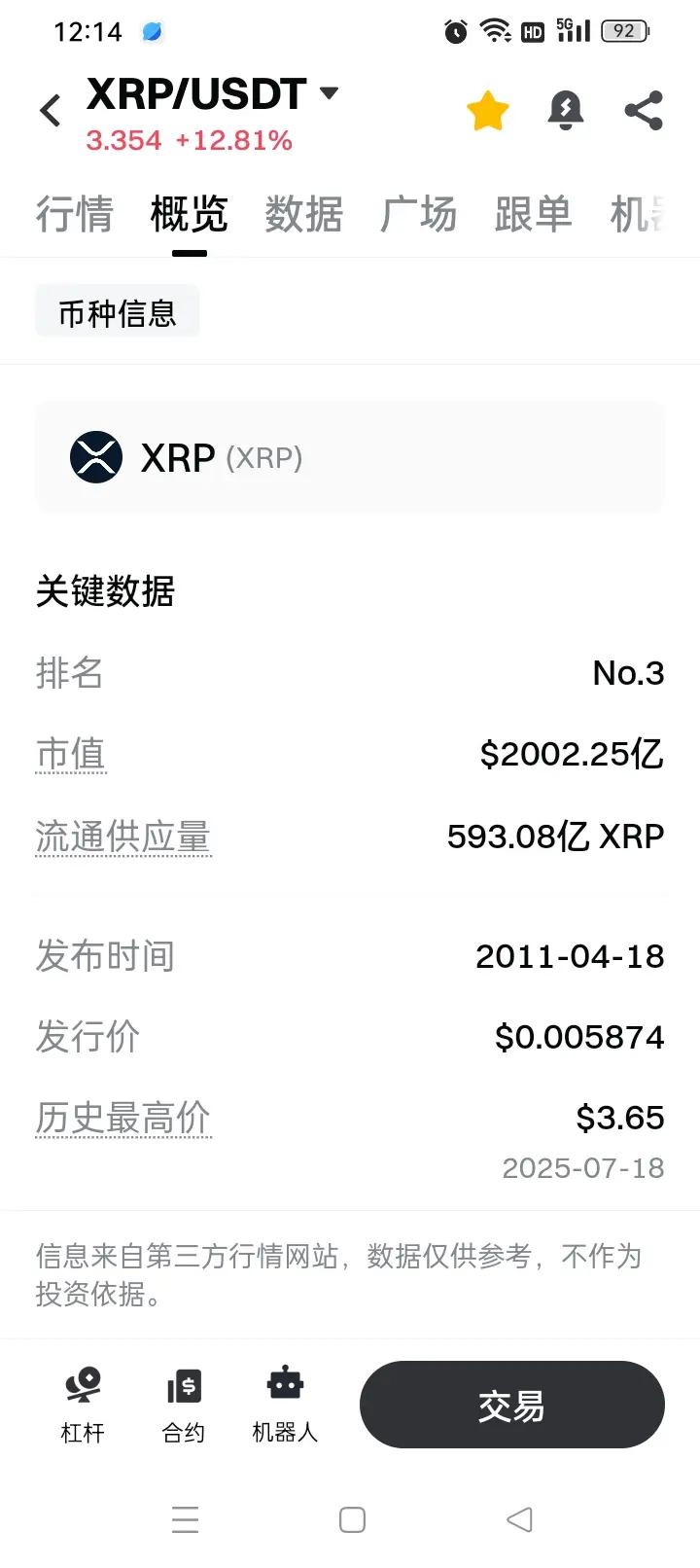PhysicalPublicChain
Publique contenido y obtenga rendimientos de minería por contenido
placeholder
- Recompensa
- Me gusta
- 2
- Republicar
- Compartir
Junziyou1918 :
:
El momento en que se puede retirar lo que se mina en el teléfono es cuando colapsa.Ver más
- Recompensa
- Me gusta
- Comentar
- Republicar
- Compartir
El volumen gastado por los holders a corto plazo de $BTC en ganancias ha disminuido al 45%, por debajo del umbral neutral. Esto refleja un mercado equilibrado, con una toma de ganancias modesta y sin una clara convicción direccional entre los inversores a corto plazo.
#crypto#
Ver originales#crypto#
- Recompensa
- 1
- 4
- Republicar
- Compartir
SimpleHappiness1111 :
:
Envía un anuncio jajajajajajajajajajaja el propietario de manera exhaustiva y repetitiva.Ver más
A quién seguir
Más
YiboMarketAnalysis
¡Se puede luchar tanto en largo como en corto, solo el efectivo es seguro!
A4P-PRIYA✅
Usuario más activo
ZhongDaSaid
Usuario más activo
Analizo detenidamente $ETH, el actual precio de 3500 dólares parece común, pero esconde un profundo significado. La actividad on-chain está aumentando de manera constante, el ecosistema L2 está floreciendo y los fondos institucionales también están haciendo su movimiento en silencio.
$ETH como líder en contratos inteligentes, está avanzando hacia nuevas alturas en activos financieros. Un objetivo razonable para mí a fin de año son 7000 dólares, las fluctuaciones de precios no son más que brechas en la corrección del mercado. Ahora, elige posicionarte en momentos de bajo perfil y espera a que e
$ETH como líder en contratos inteligentes, está avanzando hacia nuevas alturas en activos financieros. Un objetivo razonable para mí a fin de año son 7000 dólares, las fluctuaciones de precios no son más que brechas en la corrección del mercado. Ahora, elige posicionarte en momentos de bajo perfil y espera a que e
ETH2.37%

- Recompensa
- Me gusta
- Comentar
- Republicar
- Compartir
- Recompensa
- Me gusta
- 1
- Republicar
- Compartir
I_mGoingToSleepXMC :
:
DOGE es una basura, no tiene su propio mercado, solo sigue comiendo de las sobras de BTC y Ether, ni siquiera puede comer algo caliente.¡Cápsula de vela sexta Dan!
Esta mañana, el Ether estaba por encima de 3690, salió cerca de 3800, con un espacio de cerca de 110 puntos, 21000🔪!(Actualmente se han acumulado 15w🔪!)
Ver originalesEsta mañana, el Ether estaba por encima de 3690, salió cerca de 3800, con un espacio de cerca de 110 puntos, 21000🔪!(Actualmente se han acumulado 15w🔪!)
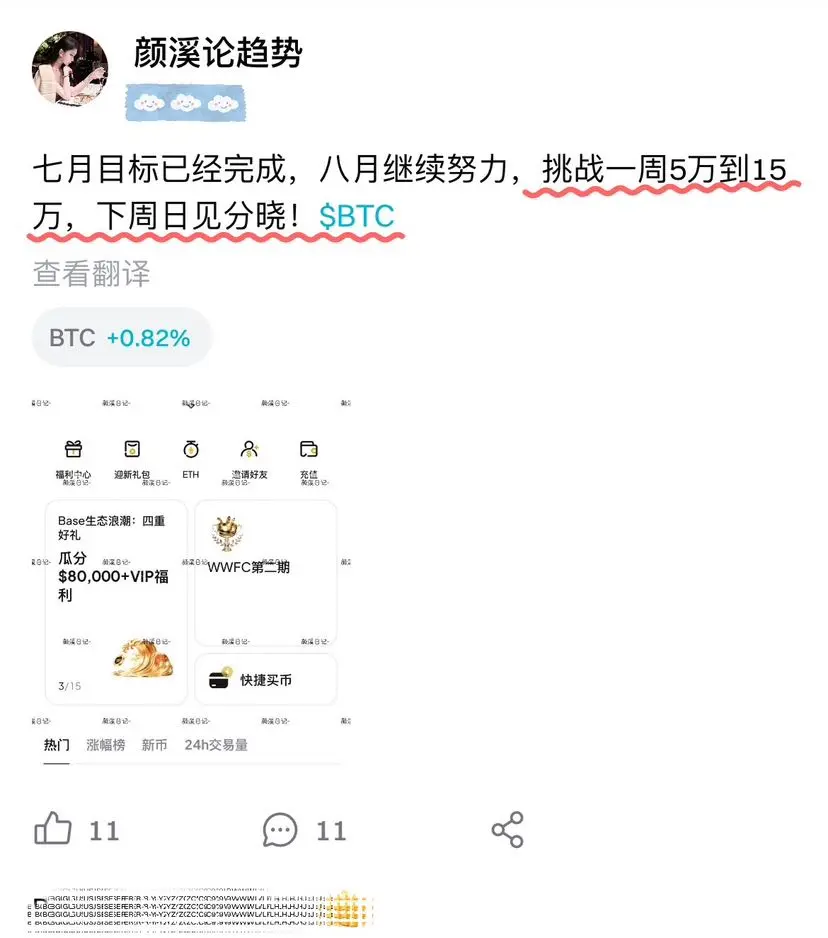
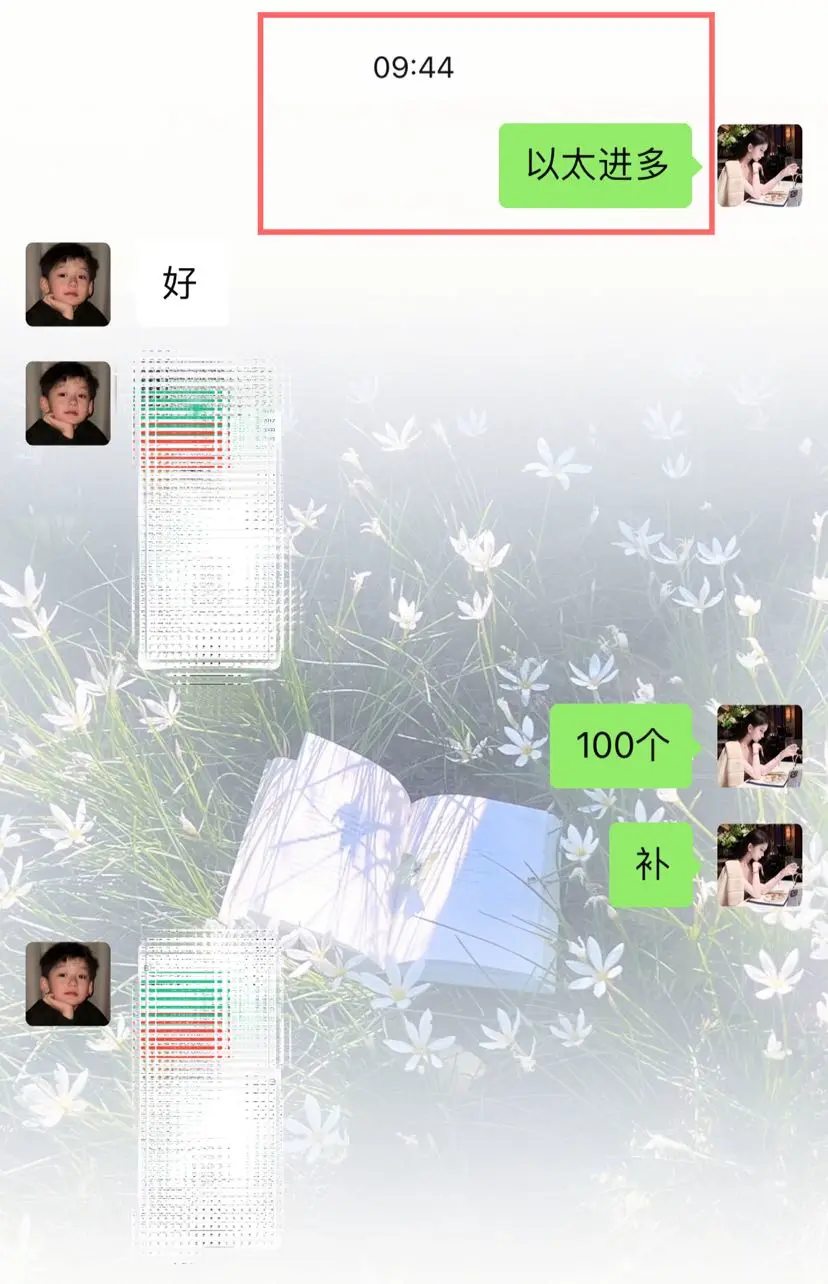


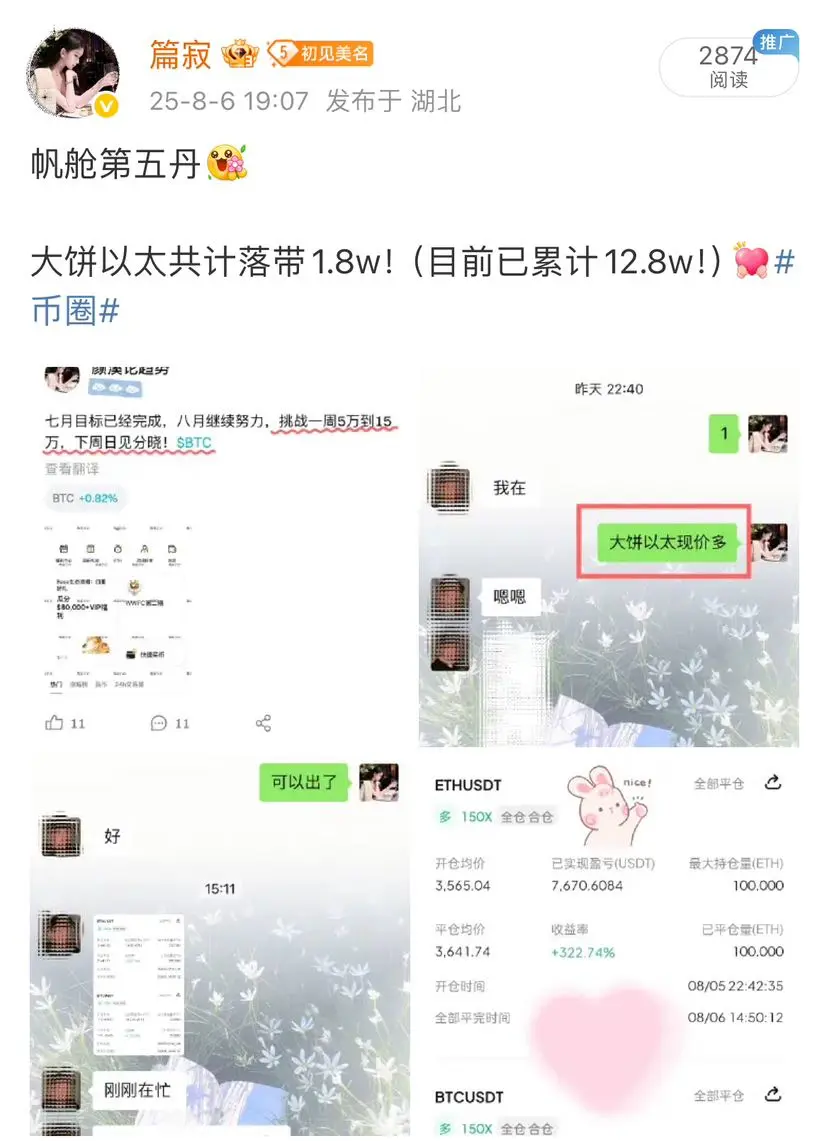
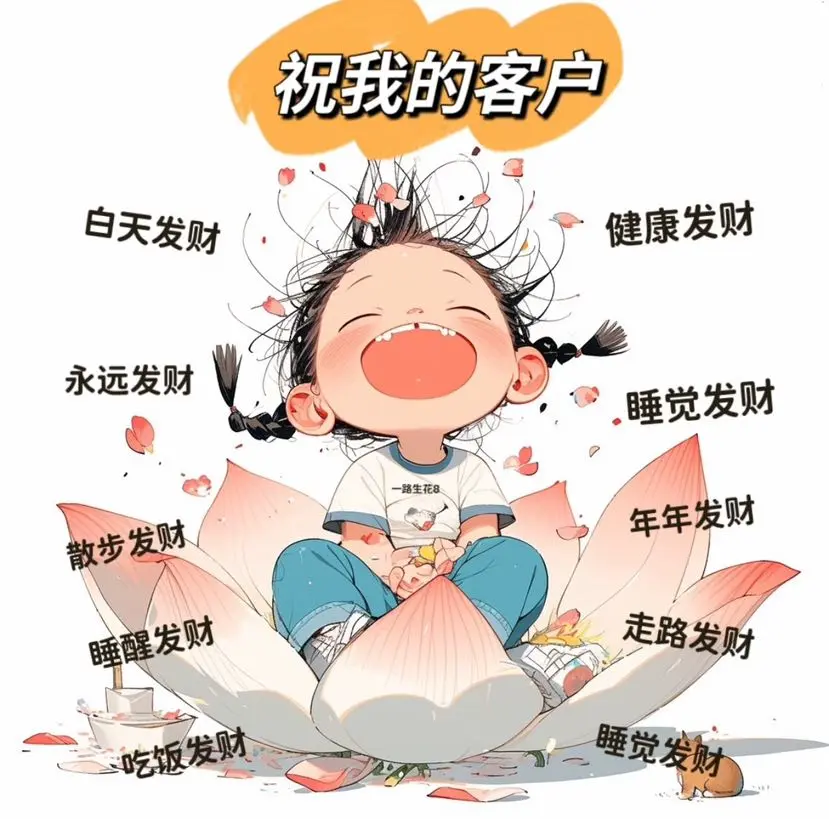
- Recompensa
- Me gusta
- Comentar
- Republicar
- Compartir
- Recompensa
- Me gusta
- Comentar
- Republicar
- Compartir
Está bien, está bien, FB no es conveniente, ¿verdad?
FB-1.61%
[El usuario ha compartido sus datos de comercio. Vaya a la aplicación para ver más.]
SuperCryptoWorld,Let'sTest.
[El usuario ha compartido sus datos de comercio. Vaya a la aplicación para ver más.]



- Recompensa
- Me gusta
- Comentar
- Republicar
- Compartir
"Tokenización" es la mayor mentira en el fraude criptográfico.
Si las instituciones financieras realmente quisieran cambiar las reglas para permitir el acceso abierto, global y 24/7 a los mercados de acciones/commodities, lo harían. La "tokenización" no ofrece beneficios a las instituciones financieras ya que no quieren eliminar su poder monopólico.
Ver originalesSi las instituciones financieras realmente quisieran cambiar las reglas para permitir el acceso abierto, global y 24/7 a los mercados de acciones/commodities, lo harían. La "tokenización" no ofrece beneficios a las instituciones financieras ya que no quieren eliminar su poder monopólico.
- Recompensa
- 1
- 2
- Republicar
- Compartir
MarketLady :
:
Buena informaciónVer más
- Recompensa
- Me gusta
- Comentar
- Republicar
- Compartir
#ETH Whales Accumulate# Vamos a esperar la gran subida que se está acercando #Show My Alpha Points# #Gate & WLFI USD1 Points Program # #Show My Alpha Points# #ETH Whales Accumulate#
Ver originales
- Recompensa
- Me gusta
- 1
- Republicar
- Compartir
Muazzzzz :
:
HODL Tight 💪- Recompensa
- Me gusta
- Comentar
- Republicar
- Compartir
El Banco de Inglaterra recortó las tasas de interés, con el gobernador Andrew Bailey y cuatro colegas apoyando la reducción de las tasas al 4%, mientras que otros cuatro responsables políticos buscaron mantener los costos de los préstamos en hold debido a preocupaciones sobre la alta inflación.
HOLD1.23%
- Recompensa
- 13
- 4
- Republicar
- Compartir
LayerHopper :
:
¿Esta ronda de salvamento podrá contener la inflación? JejeVer más
- Recompensa
- Me gusta
- 3
- Republicar
- Compartir
HSKMustHoldFirmly :
:
Estás hablando tonterías.Ver más
- Recompensa
- 2
- 13
- Republicar
- Compartir
AllIn,JustDoIt :
:
¡Tonto! ¡Comparar esta moneda de bomba con XRP! Piensa en lo gracioso.Ver más
Si quieres ir rápido, ve solo
Si quieres llegar lejos, ve acompañado
Este es el camino
Si quieres llegar lejos, ve acompañado
Este es el camino
FAST-0.09%

- Recompensa
- 7
- 4
- Republicar
- Compartir
MetaMisery :
:
No se trata de qué tan lejos se va, sino de si se quiere acompañar.Ver más
- Recompensa
- 1
- Comentar
- Republicar
- Compartir
Cargar más
Únete a 30 millones de usuarios en nuestra creciente comunidad
⚡️ Únete a 30 millones de usuarios en la conversación sobre la tendencia cripto
💬 Interactúa con tus creadores favoritos
👍 Explora lo que te interesa
- Tema
27k Popularidad
8k Popularidad
2k Popularidad
77k Popularidad
21k Popularidad
A quién seguir
Más
YiboMarketAnalysis
¡Se puede luchar tanto en largo como en corto, solo el efectivo es seguro!
A4P-PRIYA✅
Usuario más activo
ZhongDaSaid
Usuario más activo
VirtualCurrencyResearc
Usuario más activo
2024BigNiuNiu
Usuario más activo
Sin registro
- Anclado


